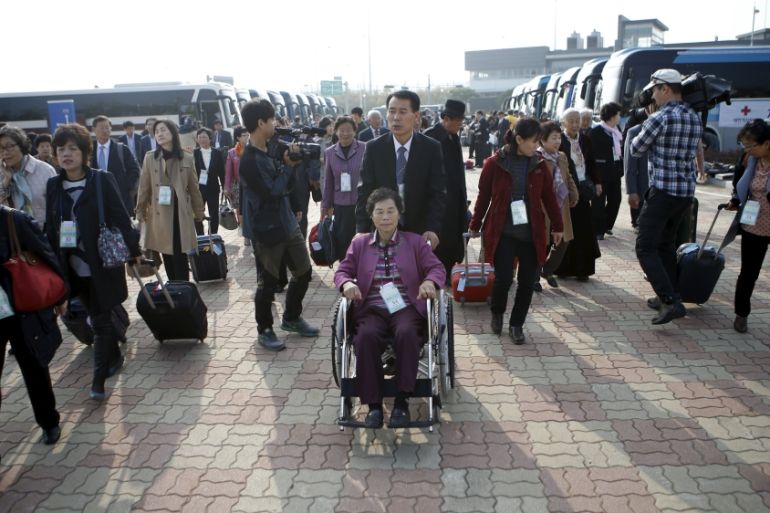S Koreans arrive in North for emotional family reunions
Hundreds of South Koreans cross border to North for reunions with relatives separated since war 60 years ago.

Hundreds of South Koreans have crossed the border to North Korea in a stream of buses for emotional reunions with relatives they have been separated from since the war between the countries more than 60 years ago.
The reunion programme, which began on Tuesday and lasts for a week, is taking place at the Kumgang Mountain resort in North Korea – located near the heavily fortified border.

The elderly South Koreans said they were taking long johns, medicine, parkas, calligraphy works and cash with them to give to their family members in the North as presents.
Keep reading
list of 4 itemsPalestinian Prisoner’s Day: How many are still in Israeli detention?
‘Mama we’re dying’: Only able to hear her kids in Gaza in their final days
Europe pledges to boost aid to Sudan on unwelcome war anniversary
In a second round, from Saturday until Monday, about 250 South Koreans are to visit the mountain resort to reunite with about 190 North Korean relatives, the Unification Ministry said.
Divided families
Many people on both sides of the Demilitarised Zone want such reunions, but the two countries have pulled off relatively few of them.
The first round of reunions was in 1985. After a 15-year gap, several more followed from 2000 to 2010.
The most recent reunions took place in February 2014.
After the negotiated end to a recent armed confrontation across the border, the two Koreas agreed in August to restart the reunions.
About 66,000 South Koreans alive today are currently registered as members of divided families with the South Korean Red Cross.
When specific reunions are planned, Seoul chooses a small number for the meetings by lottery, then the two governments check that the relatives on both sides are still alive.
There is some time pressure on the meetings due to the advanced age and dwindling numbers of those eligible to participate. Most surviving members of separated families are in their 70s and 80s.